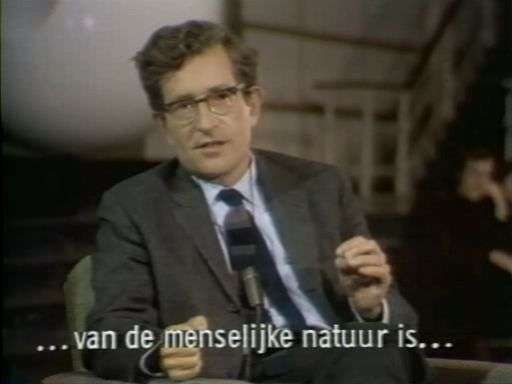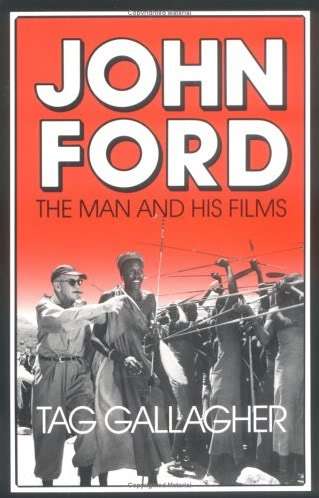While postwar British cinema and the British new wave have received much scholarly attention, the misunderstood period of the 1970s has been comparatively ignored. Don’t Look Now uncovers forgotten but richly rewarding films, including Nicolas Roeg’s Don’t Look Now and the films of Lindsay Anderson and Barney Platts-Mills. This volume offers insight into the careers of important filmmakers and sheds light on the genres of experimental film, horror, rock and punk films, as well as representations of the black community, shifts in gender politics, and adaptations of television comedies. The contributors ask searching questions about the nature of British film culture and its relationship to popular culture, television, and the cultural underground.
Read More »
Books
-
Paul Newland – Don’t Look Now: British Cinema in the 1970s (2010)
2001-2010BooksPaul NewlandUnited Kingdom -
Gönül Dönmez-Colin – Cinemas of the Other (2006)
2001-2010BooksGönül Dönmez-Colinamazon says:
An original collection of recent interviews with filmmakers whose works represent the trends in the film industries of their respective countries. Preceding the interviews, the author provides an introduction delineating historical information regarding the film industries of the countries included in the book.Each interview comprises of stills from important films discussed and a bio/filmography of the artist. In addition to creative concerns, the focal point of the interviews is to position the filmmaker within the social or political context of their respective country. The striking variety in approaches towards each interview creates a rich diversity of tone and an overwhelming impression of animation within the text. Cinemas of the Other offers a carefully researched and detailed first-hand account on the developments and trends in specific regional film industries.
Read More » -
Linda Williams – Porn Studies (2004)
2001-2010BooksLinda WilliamsUSAIn “Hard Core: Power, Pleasure, and the “Frenzy of the Visible”, Linda Williams put moving-image pornography on the map of contemporary scholarship with her path-breaking analysis of the most popular and enduring of all film and video genres. Now, fifteen years later, she showcases the next generation of critical thinking about pornography and signals new directions for study and teaching.”Porn Studies” resists the tendency to situate pornography as the outer limit of what can be studied and discussed. It moves beyond futile feminist debates and distinctions between a ‘good’ erotica and a ‘bad’ hard core. With revenues totalling between ten and fourteen billion dollars annually – more than the combined revenues of professional American football, basketball, and baseball – this volume acknowledges that visual, hard-core pornography has emphatically arrived as a central feature of American popular culture. It is time, Williams contends, for scholars to recognize this and give pornography a serious and extended analysis. The essays in “Porn Studies” exemplify this effort. The contributors examine varieties of pornography from the tradition of the soft-core pin-up through the contemporary hard-core tradition of straight, gay, and lesbian videos and dvds to the burgeoning phenomenon of pornography on the internet.They explore, as examples of the genre, individual works as divergent as The Starr Report, the pirated Tommy Lee/Pamela Anderson honeymoon video and explicit Japanese ‘ladies comics’ consumed by women.Read More »
-
Noam Chomsky vs Michel Foucault – Human Nature: Justice versus Power [Excerpt] (1971)
1971-1980BooksNoam ChomskyPhilosophyUSAInternational Philosophers’ Project 1971
Interviewer: Fons Elders
Aired on Dutch television, hence the additional subs. Debate took place in the US according to this.
Quote:
In 1971, American linguist/social activist Noam Chomsky squared off against French philosopher Michel Foucault on Dutch television … the program was entitled ‘Human Nature: Justice Vs. Power’ and offered sharp contrasts between the more traditional view of ‘human nature’ and what would become a postmodernist perspective … Chomsky, following a rationalist lineage going back to at least Plato, believes that there is a foundational ‘nature’ and that its positive aspects (love, creativity, recognizing and embracing justice) must be realized, while Foucault remains skeptical of any such notion… for him, the issue is not so much whether ‘justice’ or ‘human nature’ ‘exists,’ but how they have historically (and currently) function in society … in regard to justice, he says (this is not included in the clips): “… the idea of justice in itself is an idea which in effect has been invented and put to work in different types of societies as an instrument of a certain political and economic power or as a weapon against that power…” The point of any political struggle, for Foucault, is to alter the ‘power relations’ in which we all find ourselves (youtube user hiperf289)Read More » -
Richard Koszarski – Film History: An International Journal – Exploitation Film (1994)
1991-2000BooksRichard KoszarskiUSAThe subject of Film History is the historical development of the motion picture, and the social, technological, and economic context in which this has occurred. Its areas of interest range from the technical through all aspects of production and distribution.
With this issue on the Exploitation Film, Film History investigates one of the more obscure corners of cinema. If there is a grand narrative of film history, the exploitation film has not had its chapter therein. There are many reasons for this. This ‘Exploitation Film’ issue demonstrates the scholarly activity devoted to this marginal mode of film production and its position in regard to main- stream forms of cinematic production and representation.Read More »
-
Tag Gallagher – John Ford: The Man and his Movies (2007)
2001-2010BooksJohn FordTag GallagherThis is the revised and enlarged version of Tag Gallagher’s great book on John Ford.
659 pages, with lots of new screenshots and frame enlargements.The book was originally published in 1986.Read More »
-
Chris Marker – Chris Marker Talks About Hitchcock’s Vertigo (1994)
1991-2000Alfred HitchcockBooksChris MarkerUSA -
Various – The Rare Books Collection (1473 – 1793)
BooksVarious
01. Georg von Peuerbach, Theoricae novae planetarum, Nürnberg 1473Quote:
Peuerbach’s renowned work on the theory of planets – actually a lecture script
by his student Regiomontan – was written in 1460, one year before his death.
The Theoricae novae planetarum are based on the familiar teachings of
Ptolemy, Al-Battani, Al-Farghani and caliph Al-Mammun’s astronomer, whose
name is unknown. The word “novae” in the title is not meant to refer to a
completely new theory but only to emphasize that this work is a compilation of
the latest contemporary scientific knowledge.Peuerbach’s work gradually replaced leading textbooks of the time such as
Sphaera materialis by Johannes de Sacrobosco. By 1653 the Theoricae novae
was printed no less than 56 times, which made it to one of the most significant
scientific books in the Renaissance. Even Kepler and Kopernikus founded
their theories on this work.Read More » -
Amos Vogel – Film As a Subversive Art (1974)
1971-1980Amos VogelAmos Vogel: Film as a Subversive ArtBooksUSA
Review:
Norman Mailer wrote:
According to Vogel–founder of Cinema 16, North America’s legendary film society–the book details the “accelerating worldwide trend toward a more liberated cinema, in which subjects and forms hitherto considered unthinkable or forbidden are boldly explored.” So ahead of his time was Vogel that the ideas that he penned some 30 years ago are still relevant today, and readily accessible in this classic volume. Accompanied by over 300 rare film stills, Film as a Subversive Art analyzes how aesthetic, sexual, and ideological subversives use one of the most powerful art forms of our day to exchange or manipulate our conscious and unconscious, demystify visual taboos, destroy dated cinematic forms, and undermine existing value systems and institutions. This subversion of form, as well as of content, is placed within the context of the contemporary world view of science, philosophy, and modern art, and is illuminated by a detailed examination of over 500 films, including many banned, rarely seen, or never released works. I think that it must be the most exciting and comprehensive book I’ve seen on avant-garde, underground, and exceptional commercial film. The still pictures are so well chosen that their effect is cumulative and powerful.Read More »







